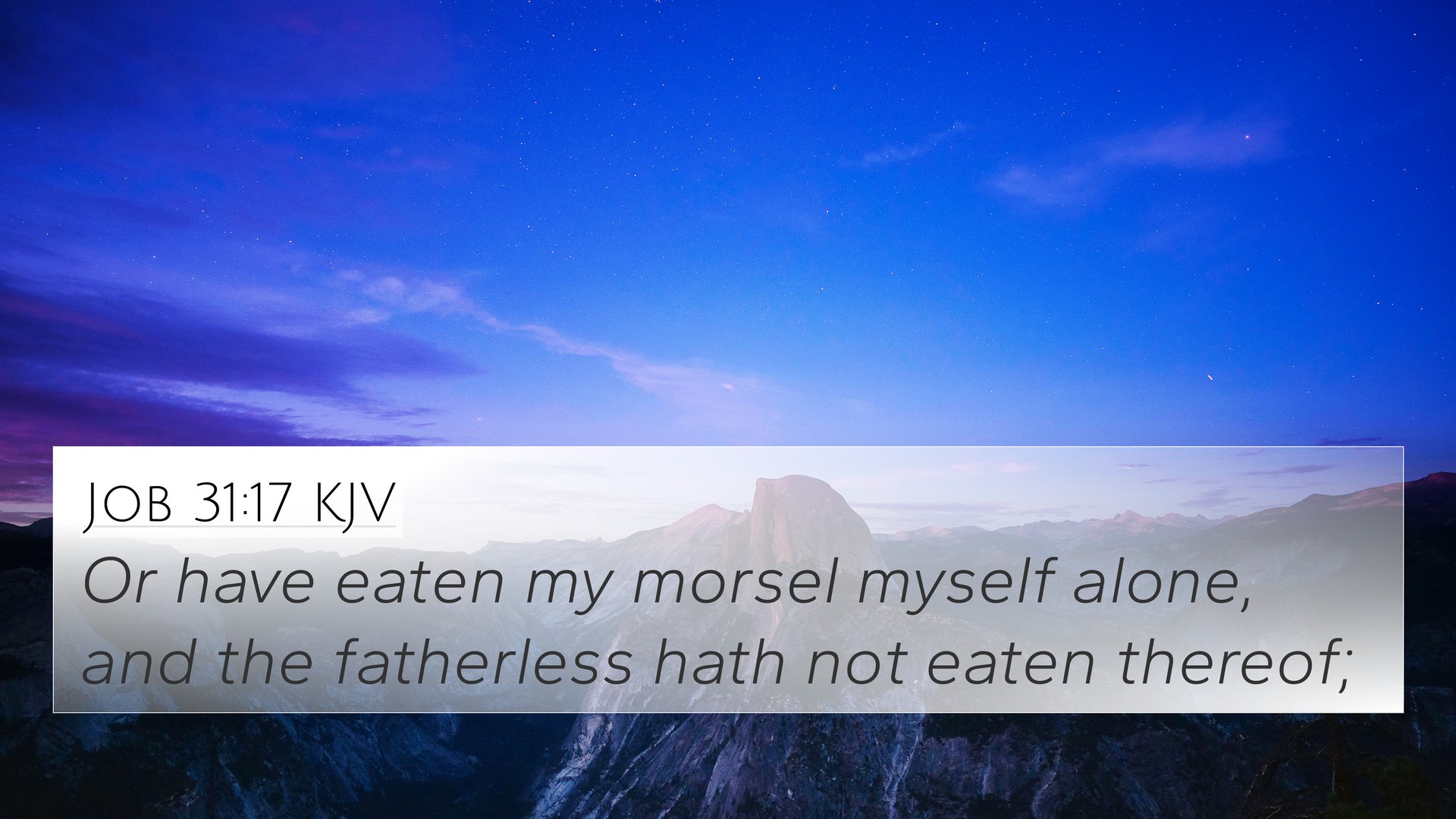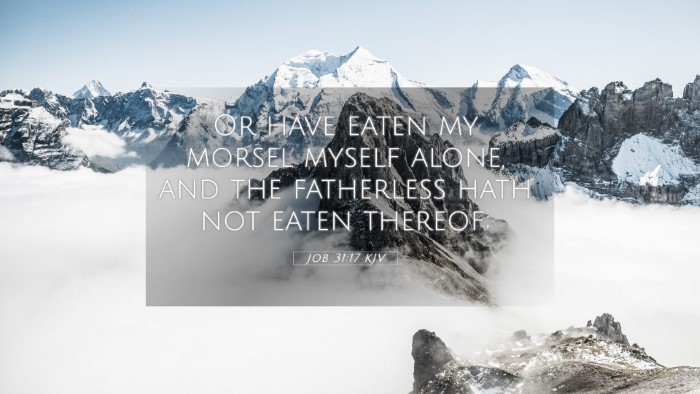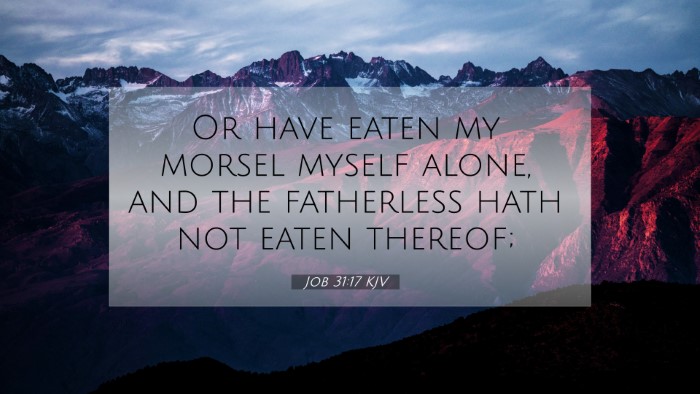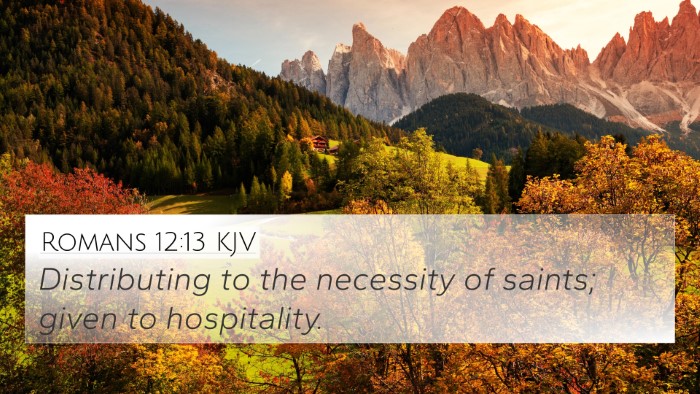This section features a detailed cross-reference designed to enrich your understanding of the Scriptures.
Below, you will find carefully selected verses that echo the themes and teachings related to Job 31:17 KJV. Click on any image to explore detailed analyses of related Bible verses and uncover deeper theological insights.
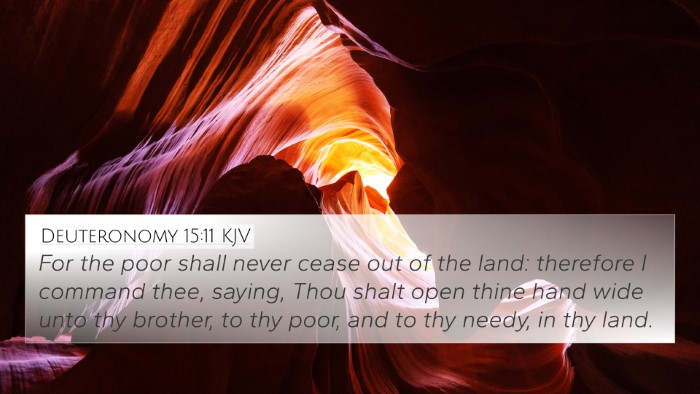 Deuteronomy 15:11 (KJV) »
Deuteronomy 15:11 (KJV) »
For the poor shall never cease out of the land: therefore I command thee, saying, Thou shalt open thine hand wide unto thy brother, to thy poor, and to thy needy, in thy land.
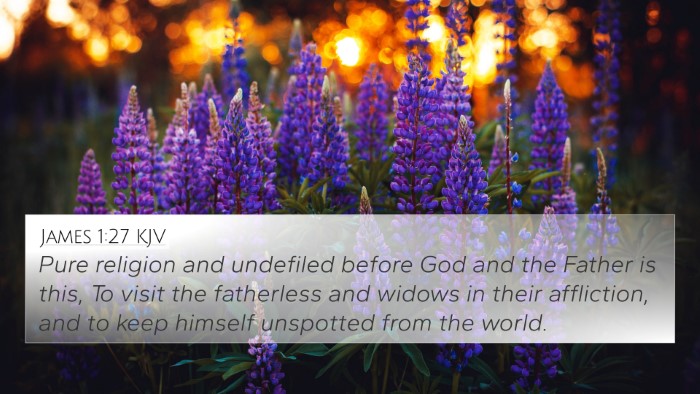 James 1:27 (KJV) »
James 1:27 (KJV) »
Pure religion and undefiled before God and the Father is this, To visit the fatherless and widows in their affliction, and to keep himself unspotted from the world.
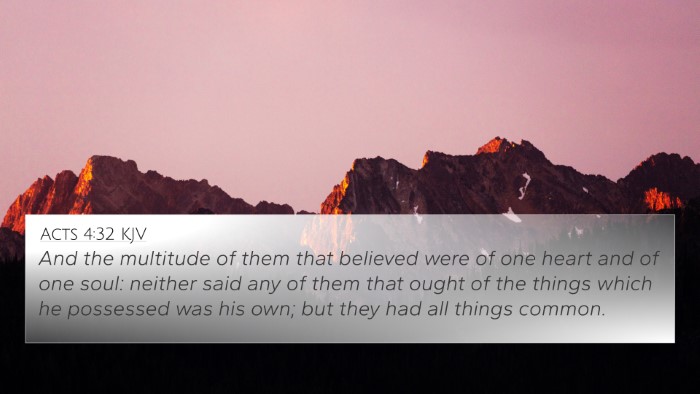 Acts 4:32 (KJV) »
Acts 4:32 (KJV) »
And the multitude of them that believed were of one heart and of one soul: neither said any of them that ought of the things which he possessed was his own; but they had all things common.
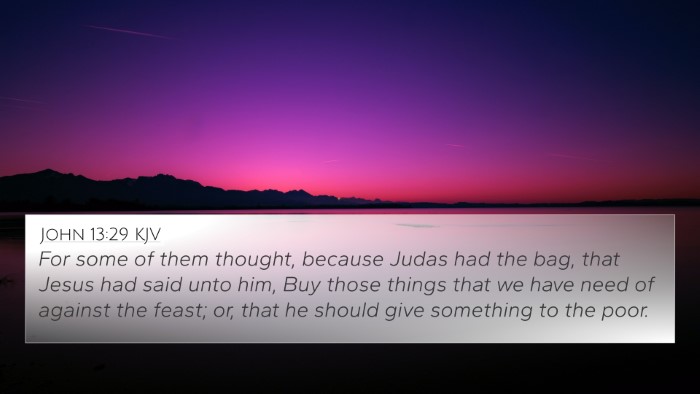 John 13:29 (KJV) »
John 13:29 (KJV) »
For some of them thought, because Judas had the bag, that Jesus had said unto him, Buy those things that we have need of against the feast; or, that he should give something to the poor.
 Luke 11:41 (KJV) »
Luke 11:41 (KJV) »
But rather give alms of such things as ye have; and, behold, all things are clean unto you.
 Ezekiel 18:16 (KJV) »
Ezekiel 18:16 (KJV) »
Neither hath oppressed any, hath not withholden the pledge, neither hath spoiled by violence, but hath given his bread to the hungry, and hath covered the naked with a garment,
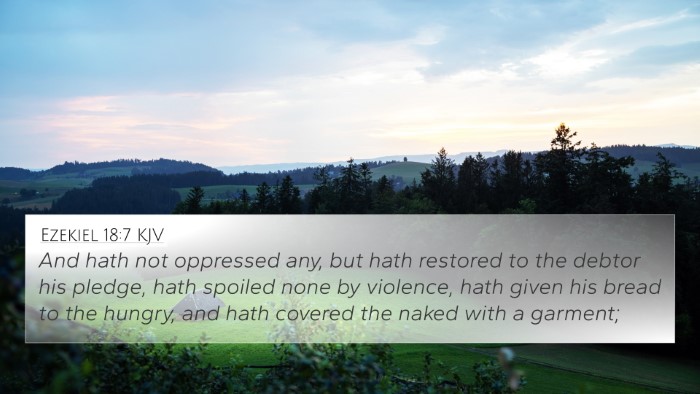 Ezekiel 18:7 (KJV) »
Ezekiel 18:7 (KJV) »
And hath not oppressed any, but hath restored to the debtor his pledge, hath spoiled none by violence, hath given his bread to the hungry, and hath covered the naked with a garment;
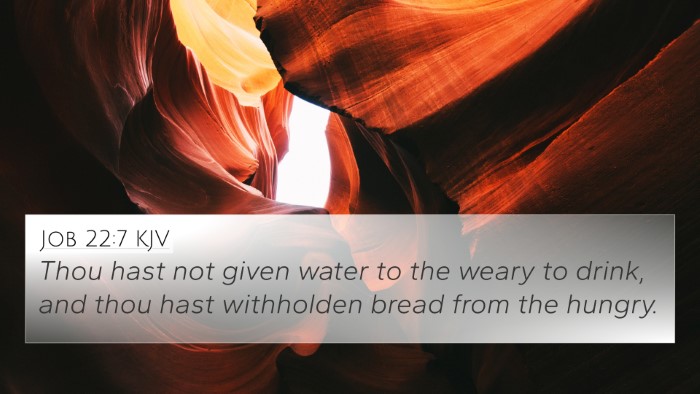 Job 22:7 (KJV) »
Job 22:7 (KJV) »
Thou hast not given water to the weary to drink, and thou hast withholden bread from the hungry.
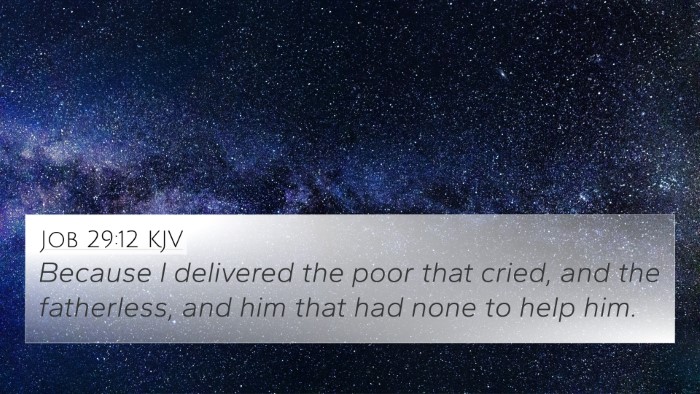 Job 29:12 (KJV) »
Job 29:12 (KJV) »
Because I delivered the poor that cried, and the fatherless, and him that had none to help him.
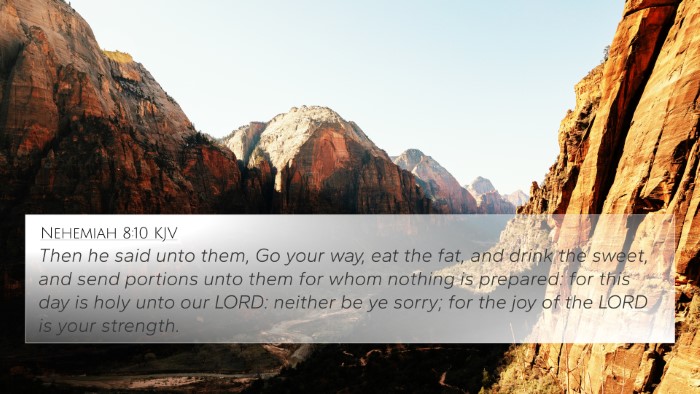 Nehemiah 8:10 (KJV) »
Nehemiah 8:10 (KJV) »
Then he said unto them, Go your way, eat the fat, and drink the sweet, and send portions unto them for whom nothing is prepared: for this day is holy unto our LORD: neither be ye sorry; for the joy of the LORD is your strength.
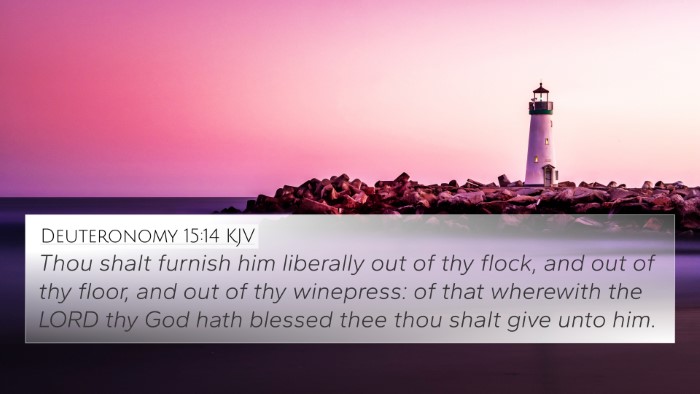 Deuteronomy 15:14 (KJV) »
Deuteronomy 15:14 (KJV) »
Thou shalt furnish him liberally out of thy flock, and out of thy floor, and out of thy winepress: of that wherewith the LORD thy God hath blessed thee thou shalt give unto him.
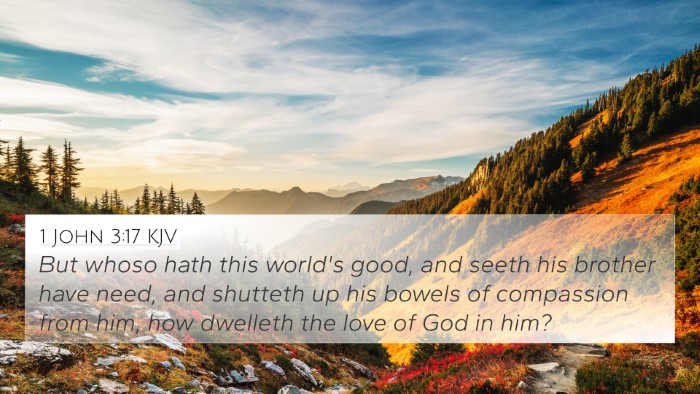 1 John 3:17 (KJV) »
1 John 3:17 (KJV) »
But whoso hath this world's good, and seeth his brother have need, and shutteth up his bowels of compassion from him, how dwelleth the love of God in him?
